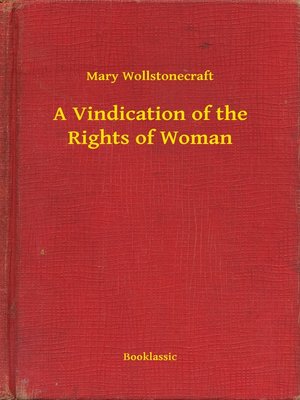

An initial, rather short part of my contribution will be dedicated to the presentation of the main events in Wollstonecraft’s life, in order to reconstruct at least some of the cultural and intellectual environments with which Mary Wollstonecraft came in contact during her life: Wollstonecraft’s role and contribution in the Enlightenment will thereby be described. I will also take into consideration Wollstonecraft’s work “A Vindication of the Rights of Men” in order to investigate the main points of Wollstonecraft’s criticism of Burke’s “Reflections on Revolution in France”.

In my contribution, I would like to analyse principles, contents and arguments present in Mary Wollstonecraft’s work “A Vindication of the Rights of Woman” – published in 1792 –, which constitutes one of the first texts – probably the first “manifesto” – of the feminist movement. Reason, virtue and knowledge constitute, in Wollstonecraft’s intents, the new values that ought to promote a radical change, in general, in the whole human dimension and, in particular, in the woman’s sphere of life. Abstract In the first chapter of her “A Vindication of the Rights of Woman”, Mary Wollstonecraft defines human degrees of reason, virtue and knowledge as the instruments for measurement of human nature’s perfection. PDF-PowerPoint presentation of the talk I gave on Sunday, 26th August 2018 at the 2018 Societas Ethica Annual Conference, Louvain-la-Neuve, Belgium, 23th – 26th August 2018.


 0 kommentar(er)
0 kommentar(er)
